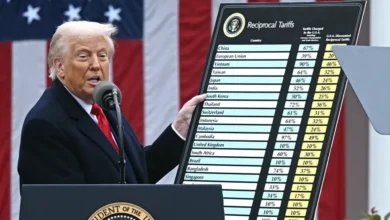Kuwait’s innovative draft law to revitalize judicial arbitration
The completed new draft law on judicial arbitration, comprising 35 articles, aims to develop the arbitration sector in Kuwait, which is considered an important support for the work of the judiciary.

-
The draft law defines and empowers arbitration in civil and commercial matters arising from contracts, establishing its jurisdiction for resolving specific legal relationships.
-
The draft law defines arbitration powers in civil and commercial contracts, determining jurisdiction for resolving legal relationships.
Al-Qabas newspaper has learned that the Fatwa and Legislation Department, under the Council of Ministers, has completed the final draft of a law on judicial arbitration.
Informed sources have informed Al-Qabas that the new draft law aims to develop the arbitration sector in Kuwait, which is considered an important support for the work of the judiciary. They explained that the new draft law will be submitted by the government to the next National Assembly after the conclusion of the electoral process, in preparation for voting and approval.
It was pointed out that the completed new draft law on judicial arbitration, comprising 35 articles, was drafted to keep pace with the most important developments in the field of judicial arbitration at the regional level. This is especially relevant in terms of adjudicating commercial and financial contracts between parties, including individuals and various companies, before resorting to judicial courts.
The draft law addresses the definitions and outlines the powers of arbitration in civil and commercial matters arising from contracts between parties. It establishes a specific legal relationship, whether contractual or non-contractual, that falls under the jurisdiction of arbitration bodies for adjudication.
The new draft law is set to repeal Law No. 102 of 2013, which limited the jurisdiction of arbitration bodies to amounts exceeding 500 thousand dinars.
Key provisions of the draft law
The following are the most important provisions of the draft law on judicial arbitration:
- Arbitration is permitted in matters where reconciliation is allowed, but it is not permitted in matters that violate public order.
- An arbitration agreement may only be concluded by a person who has the authority to dispose of the right subject to arbitration.
- Arbitration is not valid unless it is in writing, ratified, and signed by the parties involved, and includes an arbitration clause.
- The court, before which a case is presented involving contracts containing an arbitration clause, must rule that it lacks jurisdiction before discussing the matter.
- The act of one party resorting to the courts for temporary or urgent measures regarding arbitration proceedings before they begin does not waive the arbitration procedures. The Arbitration Department may not accept the arbitration request until the court has made a decision.
Arbitration body
- One or more arbitration panels shall be formed at the headquarters of the Court of Appeal, consisting of a judge with the rank of advisor and two arbitrators chosen by the parties to the dispute. These arbitrators shall be selected from among those registered in the arbitrators’ registration register at the Judicial Arbitration Department at the Court of Appeal, or from other individuals chosen by the parties. If neither party chooses an arbitrator within ten days after being assigned by the Arbitration Administration, the Administration will appoint an arbitrator from the list of specialized arbitrators in the subject matter of the dispute for membership in the Authority.
- The arbitration panel decides on preliminary issues presented in the dispute within the jurisdiction of the civil or commercial judiciary. It also rules on defenses related to its lack of jurisdiction, including objections regarding the existence, validity, expiration, or insufficient coverage of the arbitration agreement regarding the subject of the dispute, or requests made by the opponents during the dispute hearing.
The arbitration panel has jurisdiction to decide on the following issues:
- Disputes agreed upon by the concerned parties for submission.
- To exclusively decide on disputes arising between ministries, government agencies, or public legal entities, as well as between companies wholly owned by the state or between such companies, after 60 days have elapsed since the dispute was submitted to the Fatwa and Legislation Department without reaching a compromise solution.
Cassation Prosecution
The Cassation Prosecution must express its opinion on the appeal within fifteen days after the expiration of the deadlines stipulated in Article 154 of the Civil and Commercial Procedures Law, either orally during the session or in writing. The appeal should be presented to the court during a consultation session.
If the court finds the appeal inadmissible due to a formal defect, invalid procedures, or reasons not specified in Article 28 of this law, it will reject it with a non-appealable decision, providing brief reasons in the session minutes. Otherwise, the court will schedule a session to review the appeal.
The court will decide on the appeal even in the absence of the litigants and without oral arguments, unless the court deems it necessary to hear statements from the litigants and the Cassation Prosecution. In such cases, the court may allow supplementary memoranda to be filed by the prosecution and litigants on a specified date, with the prosecution being the last to speak.
The Court of Cassation must issue its ruling within 60 days from the date when the Cassation Prosecutor expresses its opinion on the appeal, as per the previous paragraph. If the Court decides to annul the appealed ruling, it must then make a decision on the matter.
- The arbitration panel will initially decide on the admissibility of the petition within 15 days from the date of the first valid session with complete procedures. If accepted, it will schedule a session to plead the matter without requiring a new announcement. However, it may issue a single ruling on both the acceptance of the petition and the matter if the opponents have submitted their requests before it. The authority will only reconsider the requests mentioned in the petition and must issue its ruling within 30 days from examining the petition’s subject.
Arbitration agreement
The arbitration agreement must be in writing, which is considered fulfilled in the following cases:
- If it is contained in documents exchanged between the parties such as letters, telexes, telegrams, or other forms of wired or wireless communication, as long as it is in written or electronic format that can be referred to, or any other means specified by law.
- If evidence of the agreement is stated in mutual claims and defense letters, where one party claims the existence of an arbitration agreement and the other party does not deny it.
- Reference in a contract to a document containing an arbitration clause, provided that this reference explicitly considers the document as part of the contract.
Arbitrator’s capacity
- The arbitrator must be a natural person with full legal capacity, enjoying civil rights, independence, and impartiality, and should not have been previously convicted of a crime against honor or integrity.
- The arbitrator’s acceptance of the assignment is evidenced in writing, by his signature on a statement indicating acceptance, or by performing an act indicating his acceptance of the assignment.
- The arbitrator’s acceptance of the assignment is confirmed regardless of nationality when chosen by any of the parties involved in the dispute.
- The Arbitration Department will set up a dedicated register to record Kuwaiti arbitrators with expertise in legal, engineering, and accounting fields, or other specializations as required by the administration.
Arbitration board
An Arbitration Council will be established within the Judicial Arbitration Administration. The council will consist of five members, headed by an advisor with the rank of agent, two heads of judicial arbitration bodies appointed by a decision of the Judicial Council, and two arbitrators registered in the schedules prepared for that purpose in the Arbitration Administration. The term of the Council will be two years.












